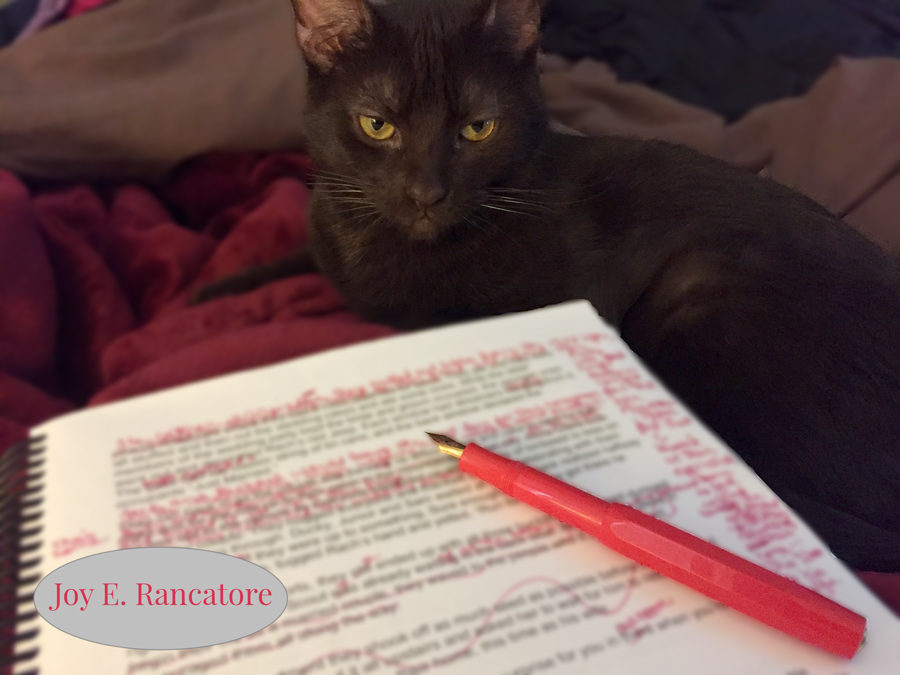Today I’m resting atop the high of what I like to call “Editor’s Peak.” You see, I’m one of those delightfully nerdy literary folks who actually enjoys editing. (If I didn’t I wouldn’t offer editing services.) It turns out I even like editing my novel.
If you’ve followed my journey for a few months, you may know that I’ve recently written a literary fiction novel. This book, which I’ve nicknamed Beast, has already taught me a number of lessons—lessons in the writing and the reading. I wanted to share some things with you from the editing stage as well.
Editing is a Privilege.
It may surprise some readers to know that many writers hate the editing stage. Seriously! Writers’ tweets range from “Ugh!” to “Shoot me now!” to “Do I really have to?”
I told you earlier I’m nerdy, right? So, it should come as no surprise that the thought of ripping out entire sections, moving others around and rewriting scene after scene after scene leaves me giddy with excitement.
Oh, and just wait until I get going on commas and semi-colons!
So, back to the writers who hate to edit—let me first say, not everyone sees in punctuation marks or diagrams sentences in their heads. And, that’s okay! Writers don’t have to be spelling bee champs or syntax superheroes. But, they need to embrace editing. And here’s where I’m talking to myself as well.
Editing removes the weeds.
Is editing ever painful?
Yes. Yes it is.
When you spend countless hours and fill buckets with tears, declaring any part “not good enough” or “not necessary” or “meh” HURTS!
The question the writer has to ask is “Do I want to give my readers a peaceful and pristine botanical garden to leisurely stroll through or do I need them to pick up a machete and hack their way through?”
Honestly, with that kind of effort, the reader may never make it to see any of the lovely flowers the writer tenderly planted.
Editing handles big issues, little ones and everything in between.
I’ll never forget my son’s face (he’s my little author dude) when I told him writers have to write more than one draft.
Shock and awe, people!
He did not appreciate the declaration that his first words may need some revising. I believe we ended the first conversation with him saying, “Well, you may need more than one draft. I don’t!”
He’s since come around (and—I hope—gained some humility).
I do think some writers forget they don’t have to change everything at once. I have to hold my own hand up as guilty there, too; I’m afraid.
You will have huge changes—points of view, tense, entire characters or settings, etc. Then you have your word choices and your sentence structure. And, finally you have the “little” things—commas and semicolons, misspelled words, the wrong there/their/they’re. If you try to make all three types of changes at the same time, prepare for frustration.
Even books are better with layers.
I like layers—in clothes, in cakes, in trifles, in dips, in parfaits. Not so much in onions—unless, of course, we’re talking onion rings!
Books are no different. I like stories with depth and surprises and hints that you don’t know are hints. I love characters with layers. I want to learn more about their past, their passions and their motivations as I read.
Layers are lovely.
First drafts don’t typically have many layers. That’s where revisions and editing come in. One of my favorite parts of editing my novel has been adding these layers. That all starts with questions.
- Why would he say this?
- Why would this other character listen?
- What gives him the credibility to give such advice?
- What if he planned this important piece that my readers discover toward the end way back at this other point in the story?
- What if these two characters had the same revelation at the same time, but didn’t know it … but my readers do?
Adding on the layers and grinning as I do it—that’s what I’ve been doing the past couple weeks!
Editing gets me one step closer to my ultimate goal.
The third main aspect that I was reminded of while editing my novel wasn’t so much a new concept as a sudden realization that led me to discover my ultimate goal in this entire process.
If you ask aspiring authors why they write, you’ll likely get various responses.
- I just love to write.
- It’s always been my dream.
- I love stories.
- I want to make money.
- I want to work in my PJs and not have to brush my hair.
As I got deeper and deeper into my revisions, I got more and more excited about picturing my readers’ faces. Finally, a few days ago it struck me—that is my ultimate goal.
I want to write, edit and publish my stories and books because I want to get these tales in the hands of readers. Beyond that, I want these words to be good enough to be part of my literary legacy.
That is why I write. And, that is why I edit.
How about you? Writers, where do your thoughts about editing typically land? Readers, have you ever thought about all the steps a story goes through before it gets to your library or bookstore? What are some questions you would like to ask about the process?


